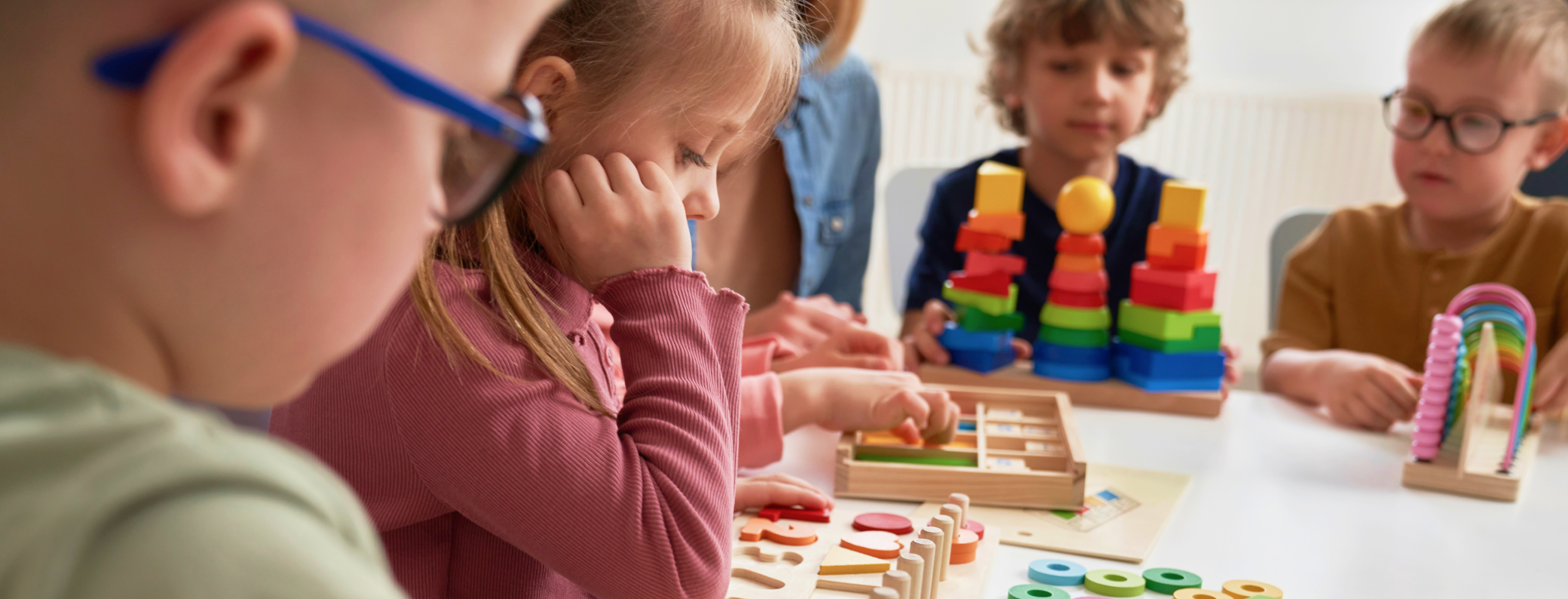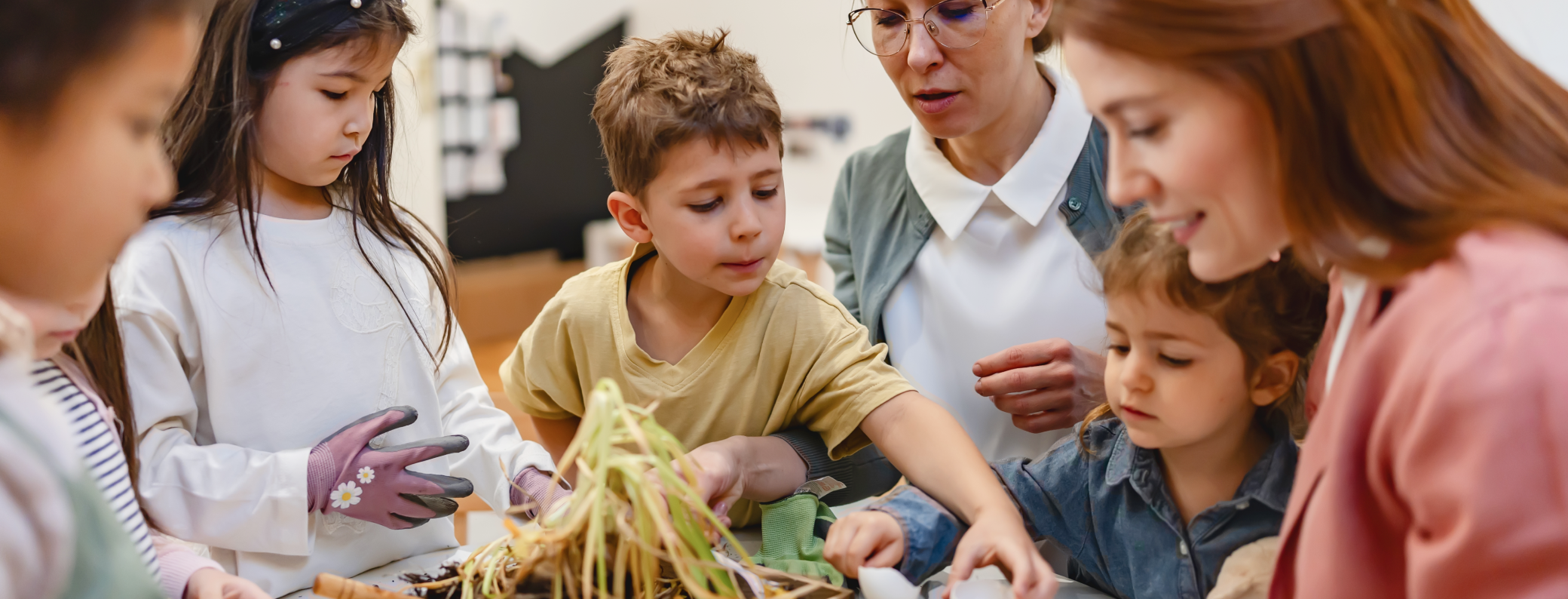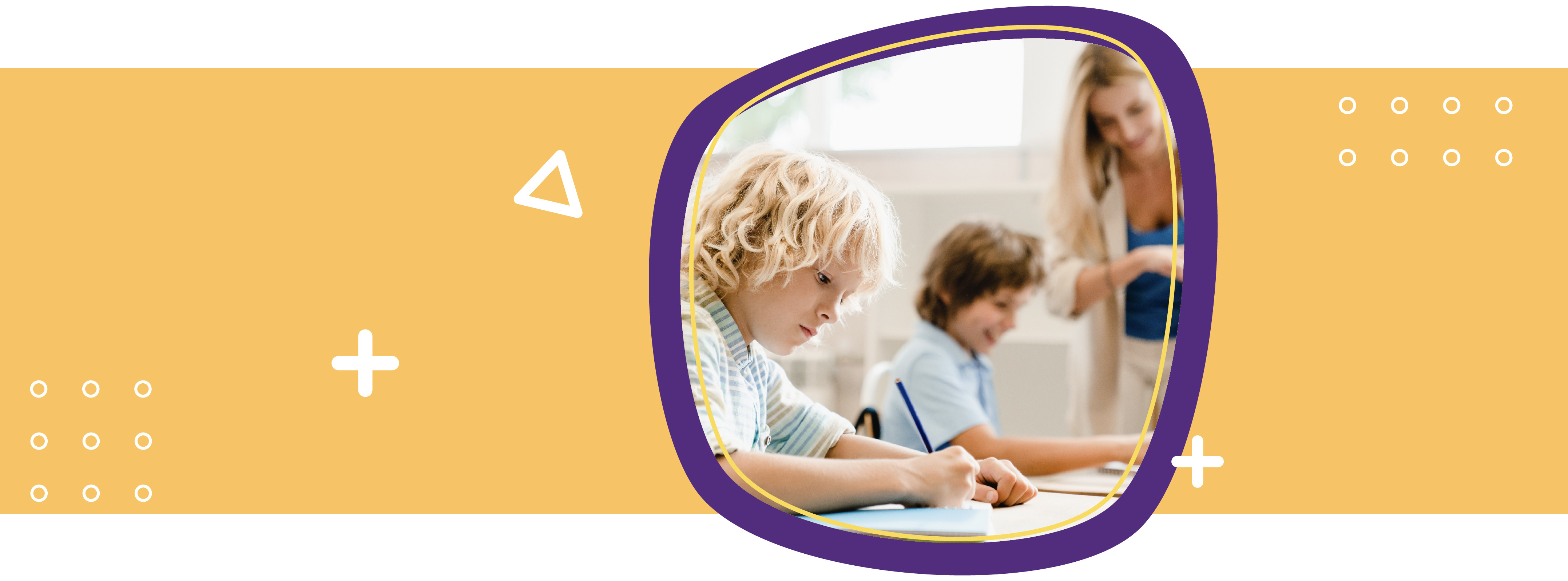Montessori. It’s a word you might see on preschool signs, toy boxes, or parenting blogs. But what does it really mean? And why has this century-old approach to education remained so influential around the world?
In essence, Montessori is more than a method, it’s a philosophy of respecting and nurturing the whole child. It prioritizes independence, curiosity, and hands-on learning in thoughtfully prepared environments.
In this article, we’ll explore the roots of Montessori education, its key principles, what it looks like in practice, and how educators can begin implementing Montessori philosophies in early childhood settings.
The Origins of Montessori Education
Montessori education was developed by Dr. Maria Montessori, an Italian physician, educator, and pioneer in child development. In 1907, she opened the first Casa dei Bambini (Children's House) in Rome, where she closely observed how children learned best when given freedom within a structured, prepared space.
Her revolutionary insights were grounded in deep respect for the child and the belief that education should foster the development of the whole person, body, mind, and spirit.
Core Principles of Montessori Education
-
Respect for the Child
Montessori sees children as capable, curious individuals. Educators act as guides, not directors, fostering autonomy and trust.
-
Prepared Environment
Classrooms are designed to encourage independence and exploration, with materials that are accessible, orderly, and appealing.
-
Hands-On Learning
Children learn through manipulating concrete materials that appeal to the senses and help build abstract understanding.
-
Freedom Within Limits
Children choose their activities and work at their own pace, within boundaries that promote respect, safety, and order.
-
Mixed-Age Groups
Classrooms span three-year age groups, allowing for peer learning and leadership among children.
-
Uninterrupted Work Periods
Long blocks of time for self-directed work promote concentration, persistence, and a deep sense of engagement.
What Does Montessori Look Like in the Early Years?
Independence in Action
Montessori children might serve themselves snacks, sweep up spilled rice, or choose their own work from low shelves. These practical life activities develop coordination, concentration, and confidence.
Sensorial Exploration
Materials like the pink tower, knobbed cylinders, and rough-and-smooth boards refine the senses, forming the foundation for cognitive development.
Language and Math Foundations
Children trace sandpaper letters, match sounds to objects, and count beads to internalize abstract concepts through tangible experience.
Grace and Courtesy
Social-emotional skills are taught intentionally. Children learn to greet others, resolve conflict peacefully, and practice mindfulness in daily routines.
Nature and the Arts
Montessori values nature, culture, and creativity. Activities include gardening, seasonal observations, artist studies, and open-ended artistic expression.
The Role of the Montessori Educator
Montessori teachers, often called guides, create the conditions for deep, self-driven learning.
They:
- Observe each child’s interests, strengths, and needs
- Prepare and maintain a calm, purposeful environment
- Present materials with precision and intentionality
- Step back to allow for self-discovery
- Model kindness, curiosity, and respect
The educator’s role is one of gentle leadership, rooted in the belief that children can and will flourish when trusted.
Benefits of Montessori Education
Montessori’s holistic approach offers wide-ranging benefits:
- Supports self-motivation and agency
Children are trusted to lead their own learning, which builds initiative and inner discipline.
- Fosters independence and self-regulation
Through consistent routines and meaningful tasks, children become confident, capable, and resilient.
- Strengthens focus and attention span
The use of uninterrupted work periods helps children develop sustained concentration.
- Encourages empathy and cooperation
Mixed-age settings and grace-and-courtesy lessons support peaceful social development.
- Builds a love of learning
The hands-on, self-paced approach sparks curiosity and intrinsic joy.
- Research-supported
Studies show Montessori graduates often outperform peers in academic achievement, social-emotional skills, and executive functioning.
How Educators Can Begin Implementing Montessori
You don’t need to overhaul your entire classroom or purchase expensive materials to begin integrating Montessori ideas. Start with mindset, then environment and routines. Here are steps educators can take:
1. Shift Your Role from Leader to Guide
- Observe rather than interrupt
- Offer choices and honor children’s decisions
- Trust the process of self-directed exploration
2. Create a Prepared Environment
- Declutter and organize the space
- Arrange shelves with accessible, purposeful activities
- Prioritize beauty, order, and natural materials
3. Introduce Practical Life Work
- Set up tasks like pouring, sweeping, folding, buttoning
- Use child-sized tools and offer real materials (not toys)
- Let children participate in caring for their environment
4. Provide Uninterrupted Work Time
- Allow long stretches of open-ended exploration
- Avoid unnecessary transitions or interruptions
- Resist the urge to fill every moment with instruction
5. Model Grace and Courtesy
- Greet each child warmly and respectfully
- Use calm, clear language
- Gently guide conflict resolution through modeling and prompts
6. Use Language and Math the Montessori Way
- Offer tactile experiences (sandpaper letters, counting beads)
- Connect symbols to real-world experiences
- Focus on foundational concepts before formal instruction
Recommended Resources for Further Reading
These resources offer deeper insight into Montessori principles:
Books
- The Absorbent Mind by Maria Montessori
- Montessori: The Science Behind the Genius by Angeline Stoll Lillard
- How to Raise an Amazing Child the Montessori Way by Tim Seldin
- Teaching Montessori in the Home by Elizabeth G. Hainstock
Online Resources
Training and Courses
- Montessori diploma and certification programs via AMI or AMS
- Online workshops from Montessori-based platforms like Trillium Montessori or The Montessori Notebook
Montessori Beyond the Classroom
Montessori is not bound to special materials or school settings. You can bring its spirit into any space:
- Invite children to participate in daily life tasks: cooking, gardening, cleaning
- Arrange a few thoughtful activities on low, accessible shelves
- Slow down your pace, observe rather than direct
- Offer meaningful choices: what to wear, what book to read, which chore to help with
- Respect children’s rhythms and trust in their inner drive
Conclusion: A Way of Being With Children
Montessori is not just about wooden toys or tidy shelves. It’s about believing in children’s immense capacity and giving them the tools to grow into peaceful, purposeful humans.
As Dr. Montessori said,
“The goal of early childhood education should be to activate the child’s own natural desire to learn.”
Let’s honor that desire, in our classrooms, our homes, and our hearts.
Interested in seeing how Parent can support you and your centre?
Let’s talk — book a quick, no obligation, walkthrough with our team
If you found this post helpful, explore our free webinars, activity library, and newsletter for more support in your early years journey.
Billing, Invoicing Automation & Smart Finances
Communication & Engagement
Child Development & Progress
Waitlist, Forms & Attendance
Effortless Team Management
Daily Updates That Matter
Templates & Printables
Blogs
Webinars
Case Studies & Testimonials
FAQs
Help Center



